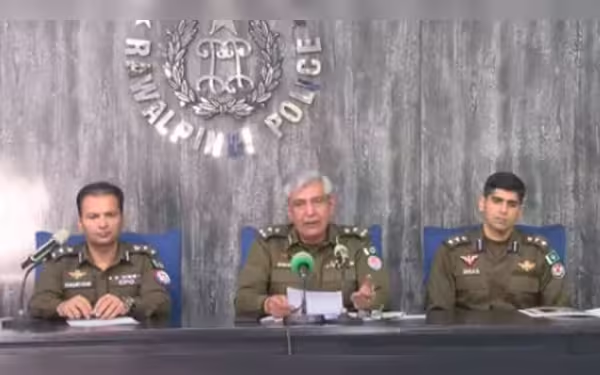Friday, December 27, 2024 10:02 AM
32 Cases Registered After Rawalpindi Protest Violence
- 32 cases registered post Rawalpindi protest unrest.
- Police reported no injuries among protestors.
- Damage to police vehicles highlights protest intensity.
 Image Credits: radio.gov.pk
Image Credits: radio.gov.pk32 cases registered following the violent protest in Rawalpindi on November 24th, with police ensuring no injuries among demonstrators.
On November 24th, a violent protest erupted in the Rawalpindi region, leading to significant unrest and prompting a swift response from law enforcement. The protest, which was part of a larger movement, saw demonstrators taking to the streets, resulting in clashes with the police. In the aftermath, the Regional Police Officer (RPO) of Rawalpindi reported that a total of 32 cases have been registered in connection with the events that unfolded during the protest.
The RPO emphasized that the police exercised restraint throughout the incident, ensuring that no protestor was injured during the confrontations. This is a notable point, as protests can often escalate into violence, leading to injuries on both sides. However, the police vehicles did suffer damage at the hands of the protestors, highlighting the intensity of the situation.
Protests are a common form of expression in democratic societies, allowing citizens to voice their opinions and grievances. However, when these protests turn violent, it raises concerns about public safety and the effectiveness of law enforcement. The RPO's statement reflects an effort to maintain peace while also addressing the damage caused during the protest.
As the situation develops, it is crucial for both the authorities and the public to engage in constructive dialogue. Understanding the root causes of such protests can lead to better solutions and prevent future unrest. It is essential for communities to come together, fostering an environment where grievances can be addressed peacefully, without resorting to violence.
The events of November 24th serve as a reminder of the delicate balance between the right to protest and the need for public order. As citizens, it is our responsibility to advocate for change through peaceful means, ensuring that our voices are heard without compromising the safety and well-being of our communities.













